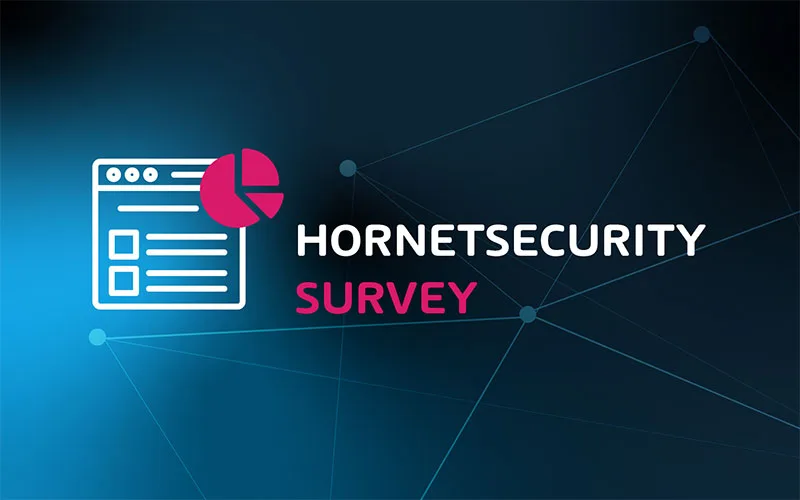

1 of every 4 companies suffered at least one email security breach, Hornetsecurity survey finds
Email security is one of the main topics of concern for any IT department, and for good reason. Security breaches often lead to loss of sensitive data, operation downtime, and lost revenue. So we conducted an email security survey of 420+ businesses, and found that 23% of them, or 1 in 4, reported an email-related security breach. Of these security breaches, 36% were caused by phishing attacks targeting arguably the weakest point of any security system, end users.
The survey also examined how companies operating on the Microsoft 365 platform handle email security, and whether or not they use the baked-in Microsoft 365 security tools, or resort to third-party solutions. It is important to keep in mind that the results reveal the number of security breaches that respondents were aware of, and that often potential security breaches are reported months after they occur, missed completely, or not reported at all.
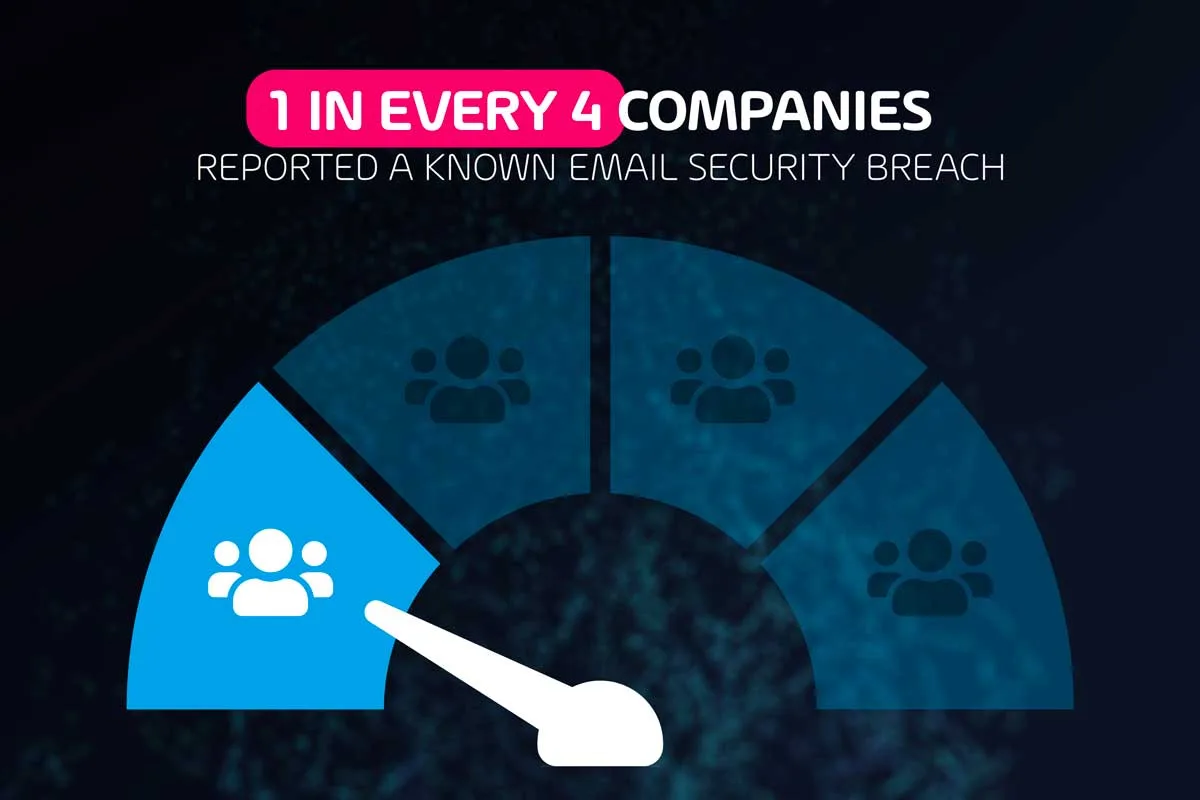
What’s the main cause of email security breaches?
Of the security breaches respondents reported knowing about, 36% were caused by phishing attacks specifically targeting end users. More surprising is that 62% of all reported email security breaches occurred due to user-compromised passwords and successful phishing attacks.
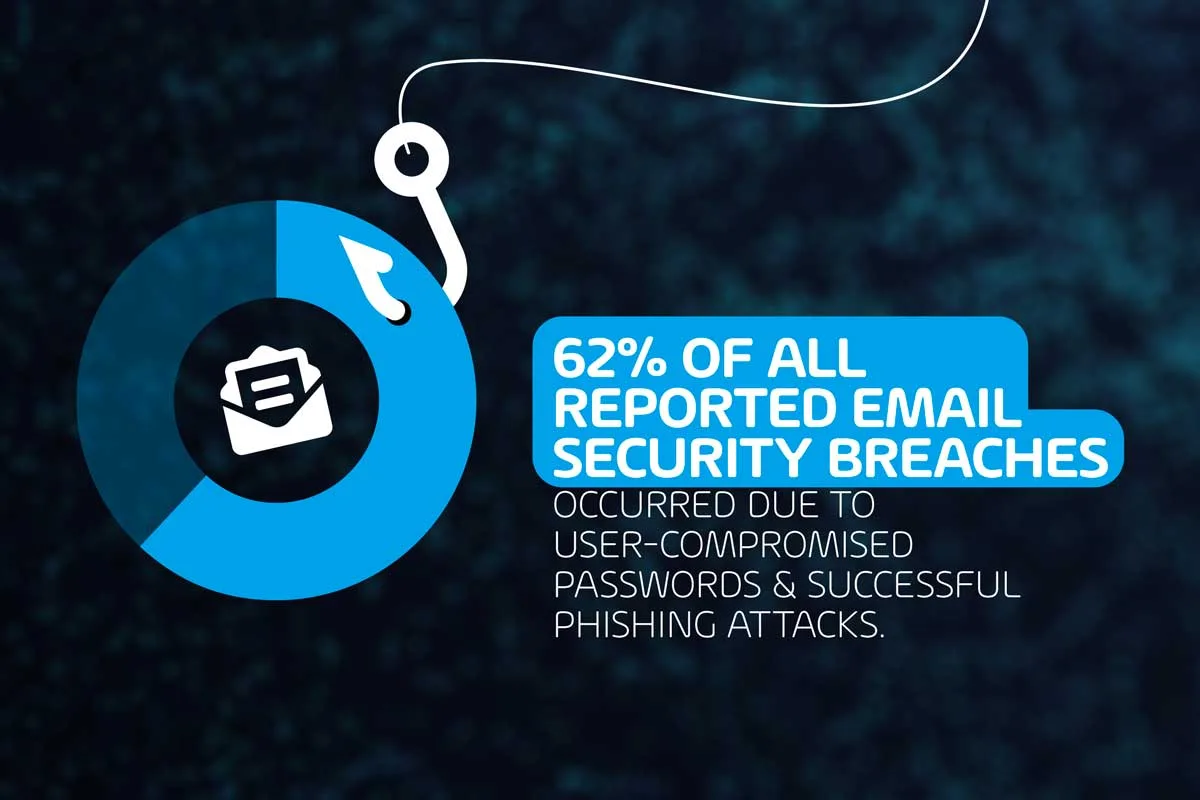
This fact reconfirms what many already think to be true – that your email security functions are only as useful as the training provided to end users to use said functions correctly and responsibly.
Use of Microsoft 365 Security Features
Keeping this data in mind, we then wanted to quantify and understand what companies are doing to bolster their email security. We asked a series of questions around most of the security features currently built into Microsoft 365. More specifically, we asked whether companies are using them, and if not, why. Here’s what we found:
● 1/3 of companies do not enable Multi-Factor Authentication for all users
● More than half (55%) of those who use MFA do not use Conditional Access
● 69% of respondents do not digitally sign messages
● 58% of respondents do not use encrypted email
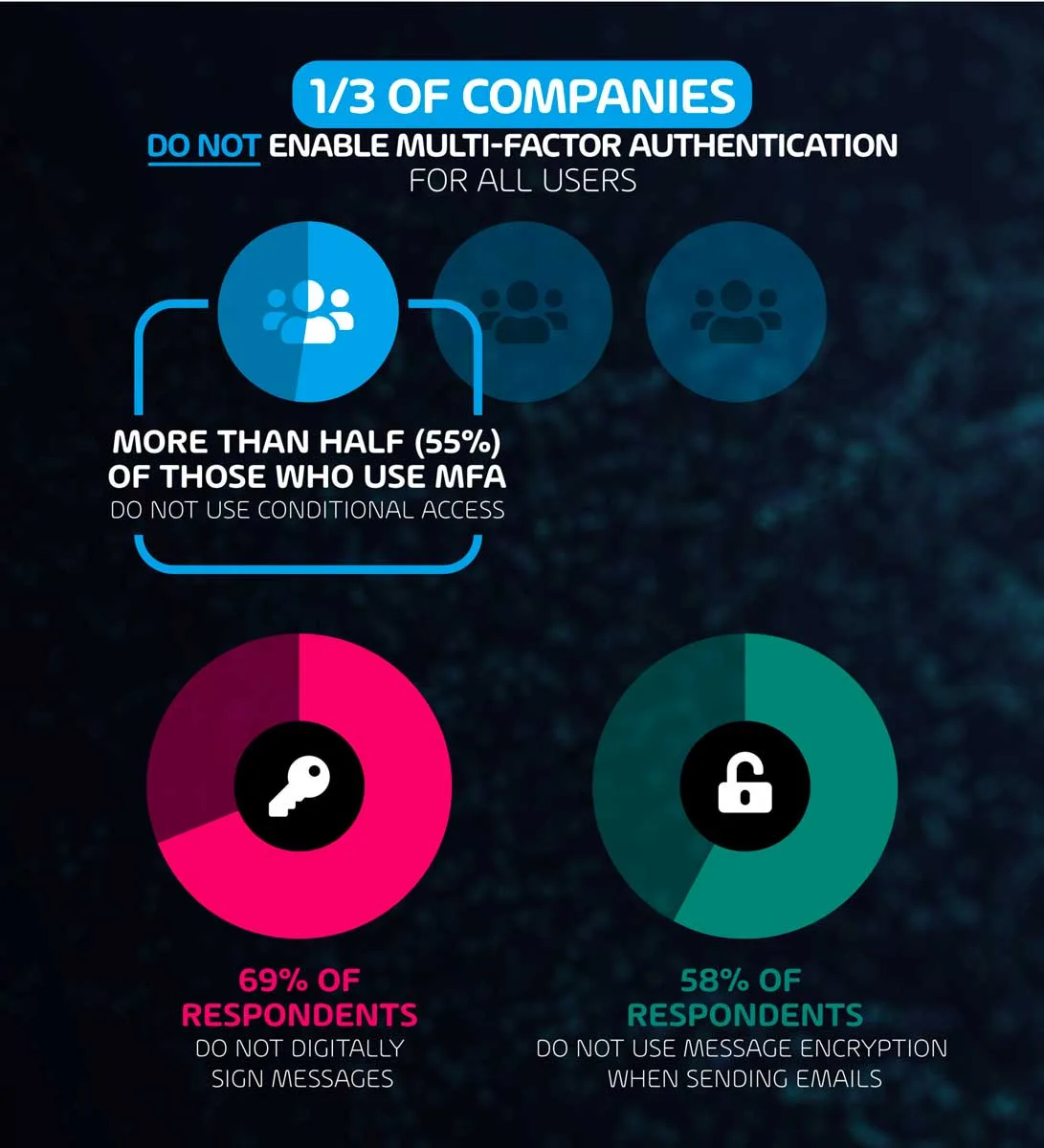
These issues are also compounded by the fact that 57% of our respondents also mention that they do not leverage Microsoft 365 Data Loss Prevention policies and 23% of these point to a lack of knowledge about the implementation of such policies as the reason.
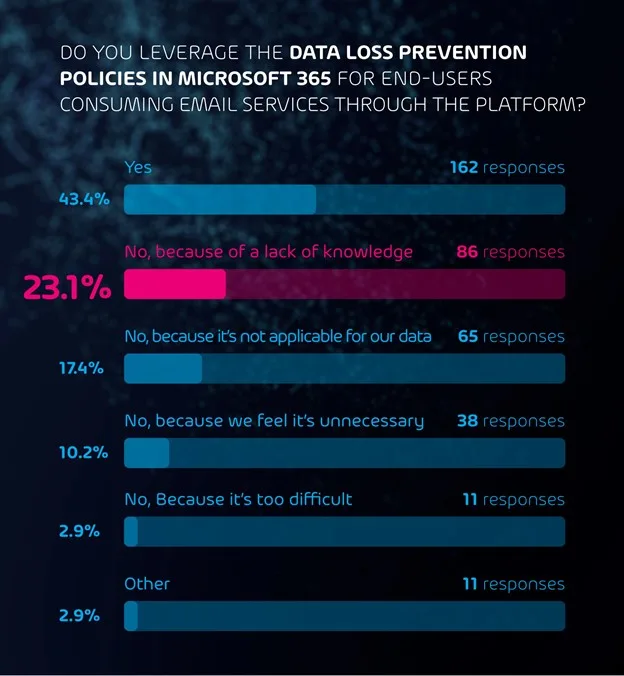
68% of companies expect Microsoft 365 to keep them safe from email threats, yet 50% use third-party solutions
There seems to be a disconnect between the expectations that businesses have of Microsoft 365’s email security, and the reality: While 2 out of every 3 expect Microsoft to keep them safe from email threats, half of all respondents resort to third-party solutions to supplement email security.
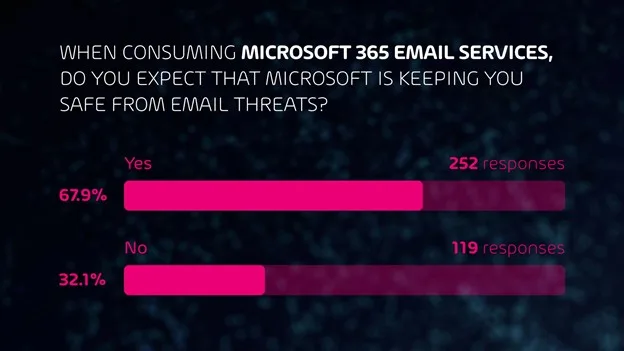
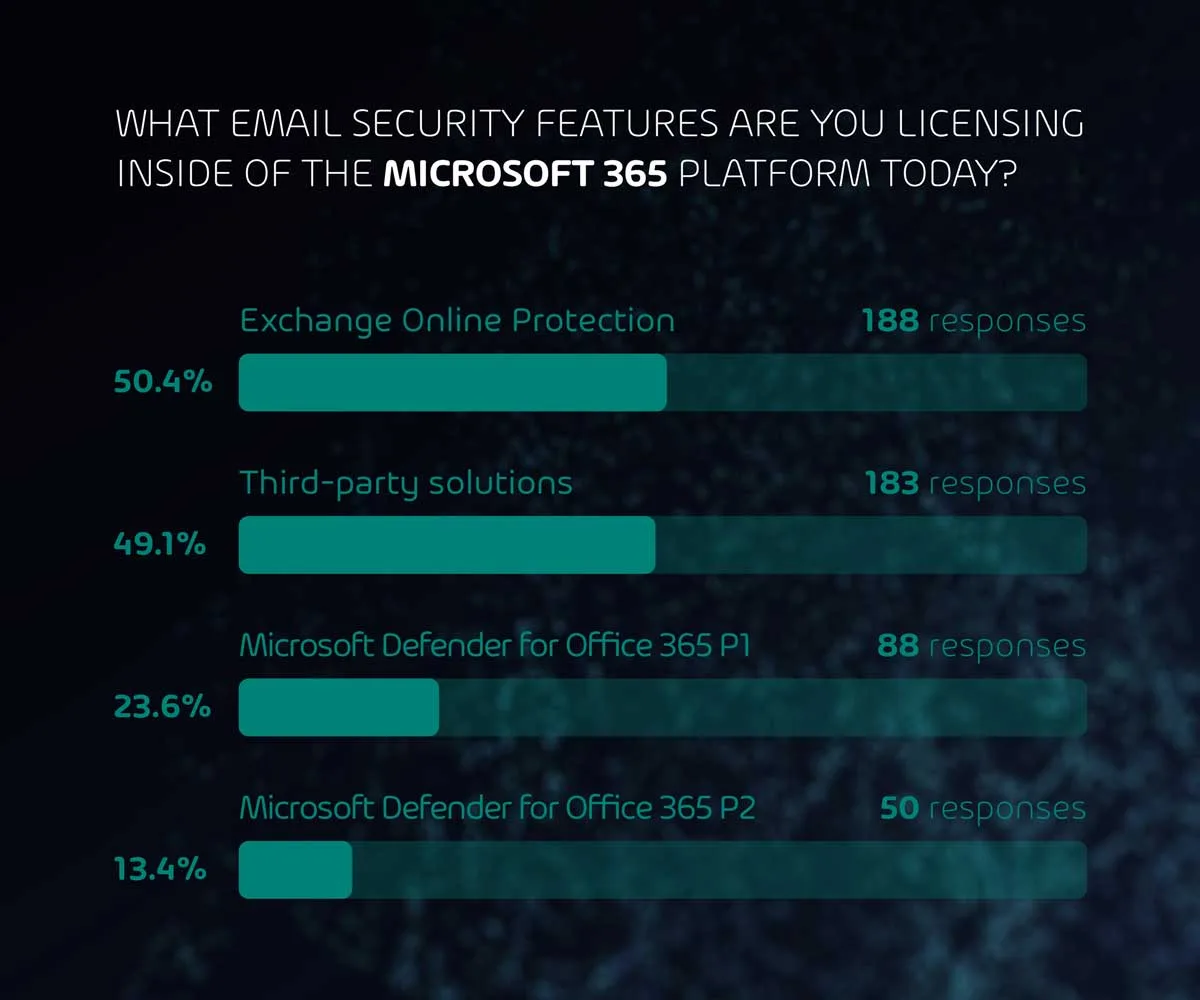
Third-Party Solutions most effective, with 82% reporting no breaches
Those that use third-party solutions reported the lowest rate of email security breaches in comparison to organizations using security packages offered by Microsoft 365. An impressive 82% of all our respondents who use third-party email security solutions reported no breaches.
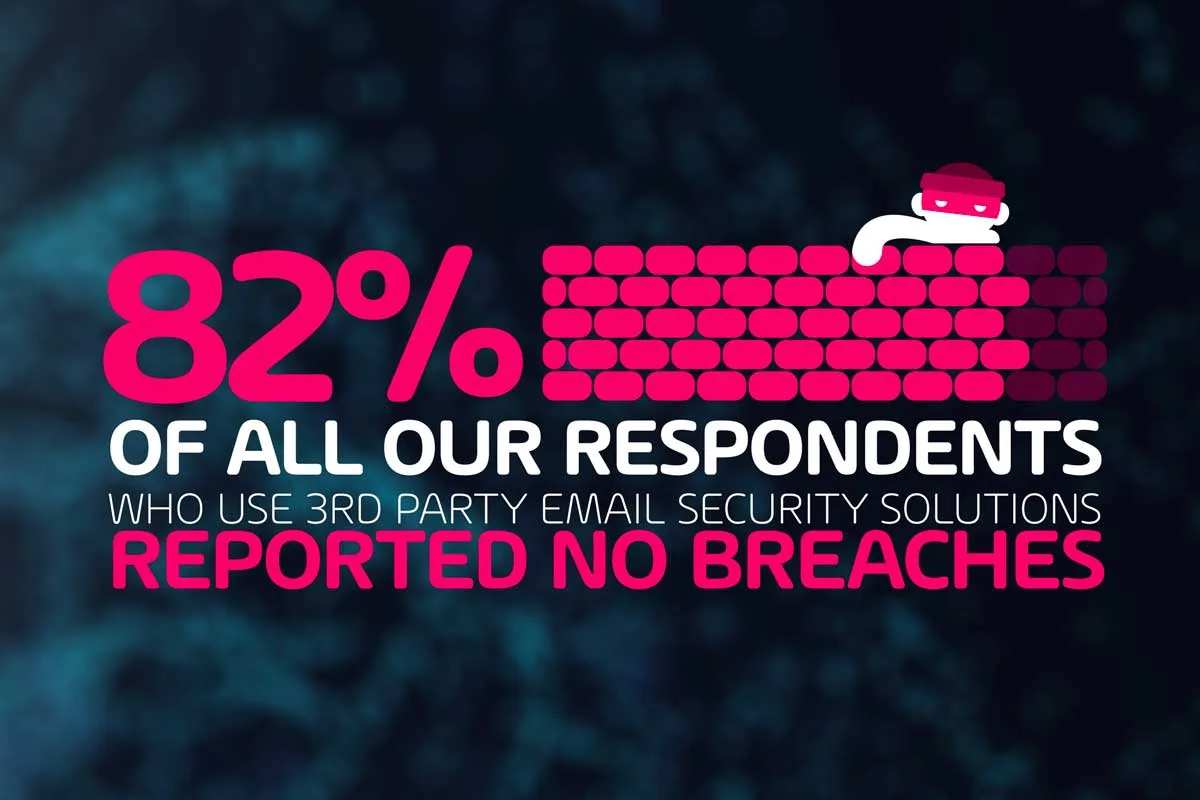
Additionally, of those who reported paying extra for Microsoft’s Enterprise Mobility & Security E3 or E5, 48% also use third-party solutions. So while expectations of Microsoft 365’s email security are high, the reality is most companies believe it’s not enough; and the numbers back up that claim.
Which companies are the most vulnerable to email security threats?
For context, here is some geographical data about our respondents: the overwhelming majority (63.8%) hail from North America, with Europe trailing at 26.5%. The rest are split between Asia (3.5%), Africa (2.9%), Australia (1.3%), Latin America (1.3%), and the Middle East (0.5%).
74% of all security breaches reported in this survey were by companies that fell within two company size brackets. Those with 201-500 employees and 501-1000 employees. This is likely due to a combination of factors such as budget and recruitment priorities that do not recognize digital security as a major concern at the outset.
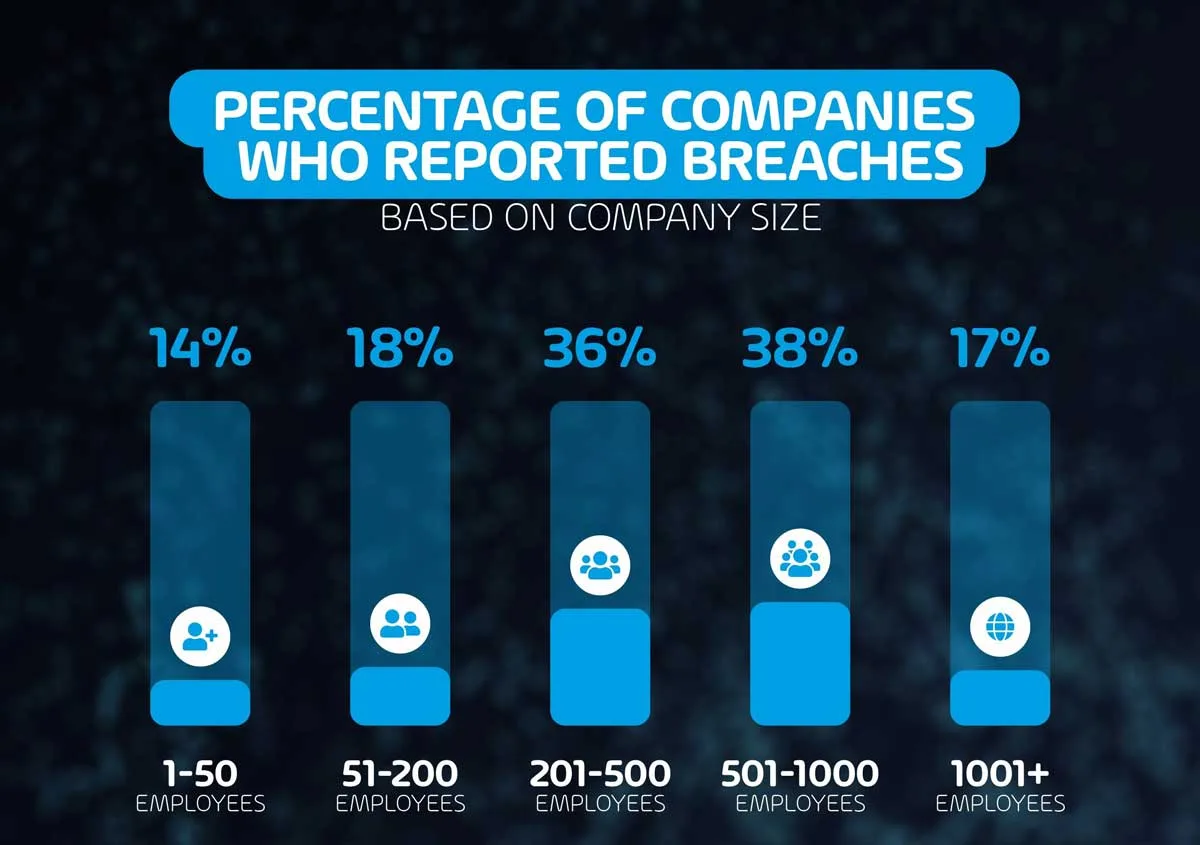
Once the employee count exceeds 1,000, the incidence of an email breach decreases to 17% – probably due to reactions to previous security concerns and the ability to invest in more robust security protocols and more advanced IT infrastructure. Illustrating this point is the fact that companies with 1,001+ employees are 11% more likely to have MFA enabled for all users than those with 201-500 employees.
Here’s another interesting tidbit: North American respondents reported 5% more email security breaches than their counterparts in Europe. Yet both regions use Multi-Factor Authentication at the same rate: 68%. This could be due to the fact that US breaches tend to yield much higher payouts, so US organizations might be targeted more aggressively.
How do companies feel about storing sensitive data on Exchange Online & Microsoft 365?
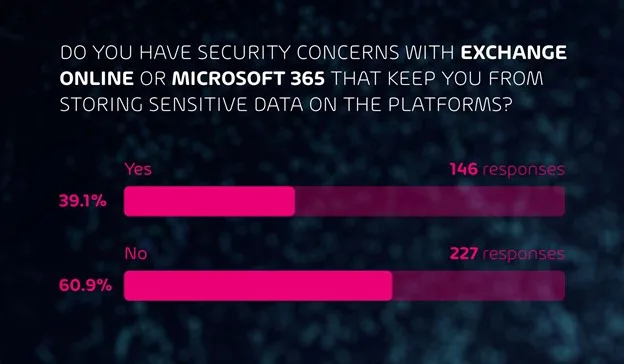
The majority of respondents reported no concerns with storing sensitive data, but it results that nearly 4 of every 10 companies do not store sensitive data using the Microsoft 365 platform due to data security concerns. That percentage is not insignificant considering that platforms such as Microsoft 365 are critical to most company operations.
Cyber threats on the rise – additional security layers strongly recommended for Microsoft 365
Microsoft is considered the biggest driver of the cloud movement and Microsoft 365 has brought the world’s most-used office suite to the cloud. Both critical and sensitive files are uploaded and exchanged every day by millions of business customers in the Microsoft suite – and cybercriminals are aware of this. The risks of cyberattacks are increasing every day and more incidents are being reported by both private individuals and companies of all sizes. As the survey shows, it is not only large global operating companies that are affected but also small and medium-sized ones that are increasingly becoming the focus of hackers.
Protect Microsoft Office 365 with 365 Total Protection – a comprehensive Security & Compliance Suite for Microsoft 365, specifically designed for the cloud service and integrates seamlessly. 365 TP is available in two versions: 365 Total Protection Business includes multiple features, such as email and data security, and thus proves to be a reliable additional protection against spam and malware attacks. Advanced features and advanced protection mechanisms are included in 365 Total Protection Enterprise. With AI-based forensic analysis mechanisms, URL malware control, and ATP sandboxing, even the latest targeted cyberattacks, such as ransomware or business email compromise, are blocked.
Furthermore, the service is characterized by its fast, 30-second onboarding process, intuitive operation, and low maintenance requirements.
Click here for more information: https://www.hornetsecurity.com/en/services/365-total-protection/

